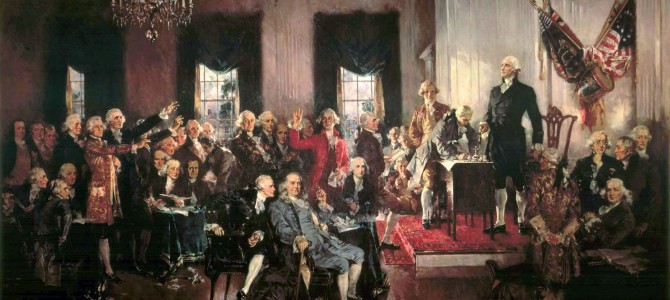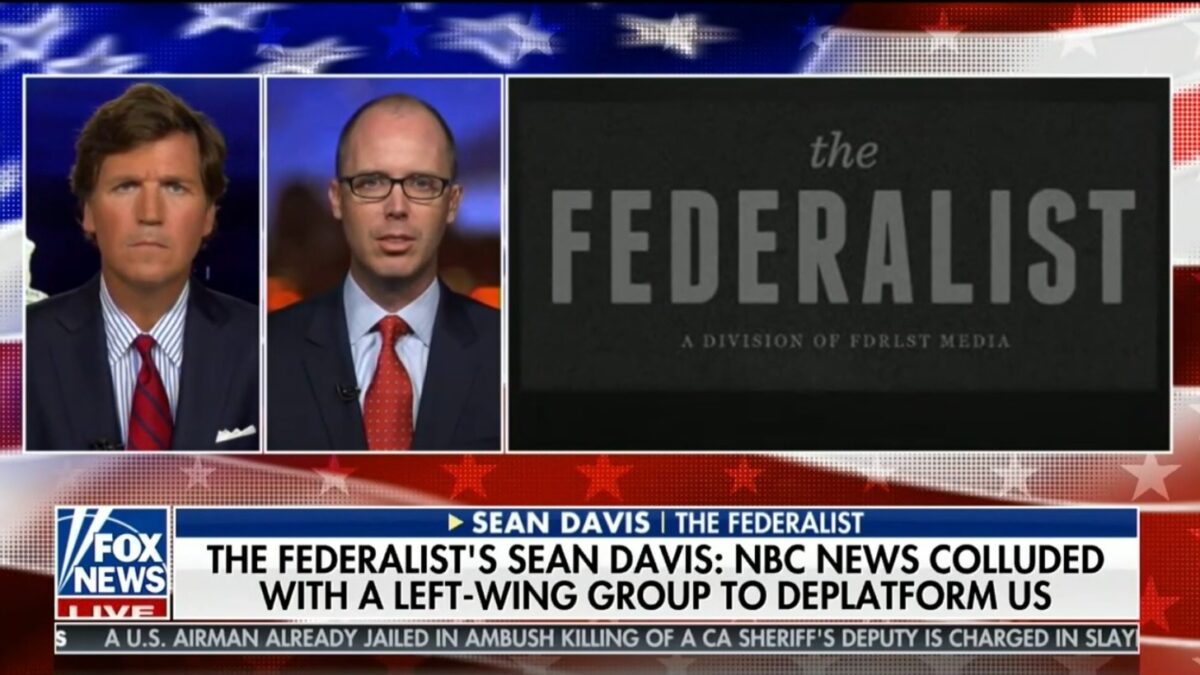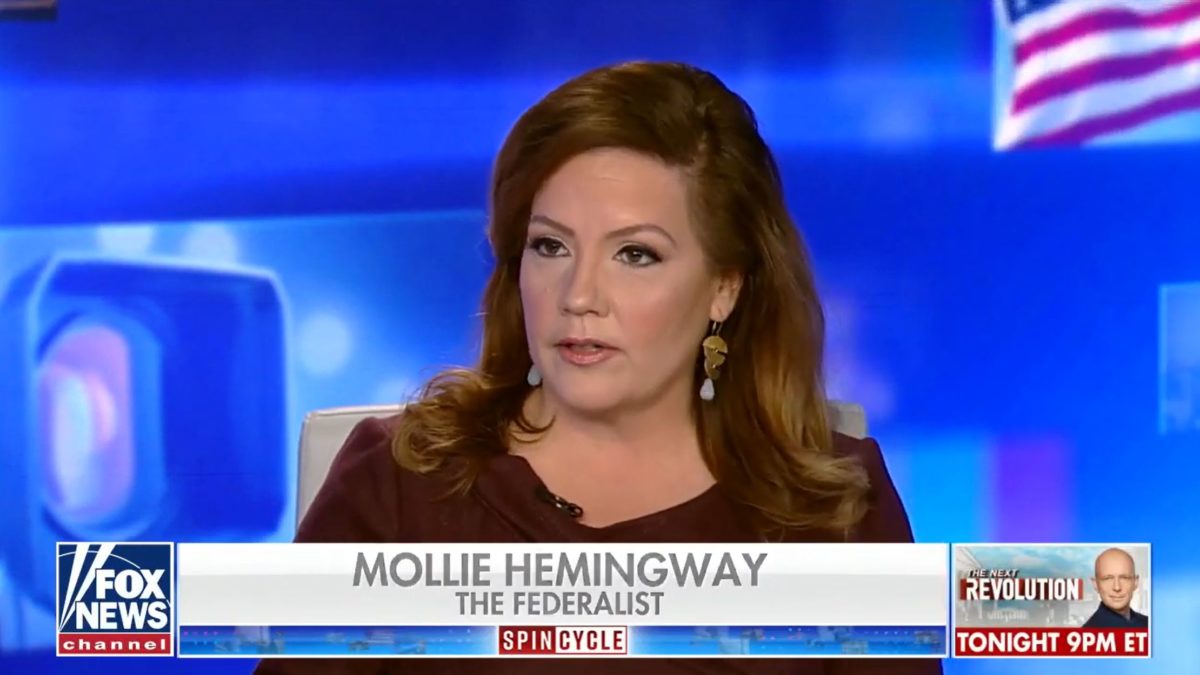
Without any sense of irony, President Obama capped April Fool’s Day with an extended tribute to the successes of the Affordable Care Act. Speaking in the White House Rose Garden, he celebrated the Administration’s claim that 7.1 million Americans have now “signed up” for Obamacare. And he did it by emptying the Progressive rhetorical playbook:
1- Opponents of Progressivism hate the poor: Check. “I’ve got to admit, I don’t get it. Why are folks working so hard for people not to have health insurance? Why are they so mad about the idea of folks having health insurance?”
2- Opponents of Progressivism have no ideas of their own: Check. “It’s helping people from coast to coast, all of which makes the lengths to which critics have gone to scare people or undermine the law, or try to repeal the law without offering any plausible alternative so hard to understand.
3- Progressivism heroically prevails against the efforts of scary plutocrats: Check. “And we didn’t make a hard sell. We didn’t have billions of dollars of commercials like some critics did.”
4- History blacklists opponents of Progressivism: Check. “In the end, history is not kind to those who would deny Americans their basic economic security.”
5- History celebrates supporters of Progressivism: Check. “Nobody remembers well those who stand in the way of America’s progress or our people. And that’s what the Affordable Care Act represents.”
6- The people hunger for Progressivism: Check. “7.1 million Americans have now signed up for private insurance plans through these marketplaces.”
7- There is no retreat from Progressivism: Check. “I’ve said before, I will always work with anyone who is willing to make this law work even better. But the debate over repealing this law is over. The Affordable Care Act is here to stay.”
Contrary to the President’s first two claims, however, a number of thoughtful, responsible, “plausible” alternatives to Obamacare have actually been advocated by leading think tanks and policy makers (see, for example, Bobby Jindal’s, The Heritage Foundation’s, and one from AEI). Perhaps the problem is the working definition of “plausible” the President and his supporters are using, which seems to have been set from the start as “not meaningfully different from Obamacare.” Under that definition, no debate ever could have been justified without accepting the first principles upon which the President’s plan was built. And so, just as “the debate over repealing the law” is over (point six), the debate over instituting the law ought never to have taken place at all.
This may explain why the President suggests that his opponents are “working . . . hard for people not to have health insurance.” There are two options: either you’re an advocate of Progressive justice who wants people to have healthcare, or you’re actively trying to keep people from getting it. To imagine a person who seeks a just administration of human affairs, who is not a Progressive, and who does not support the principle of predetermined, state-enforced positive rights is to dream of a man who lacks both a head and a heart, yet who claims to be on the road to virtue. Late bloomers and the repentant are always welcome. But qualified dissent is not.
Here the President might employ his third point: “And we didn’t make a hard sell. We didn’t have billions of dollars of commercials like some critics did.” He might add that the Administration has constantly tried to keep up with all the insurance cancellation notices that went out in the individual market last fall by extending deadlines and annulling penalties (which will likely also be the case when the employer mandate kicks in). To be fair to the President, Pajama boy does not exactly bring “hard sell” to mind. Ditto keg stand and hook-up posters. But then again, what part of “ILLEGAL not to enroll” strikes you as kinder and gentler at the end of the day? Even the most imposing used car salesman wouldn’t mind having that in his back pocket.
Meanwhile, who has spent “billions” opposing Obamacare? Not the Koch brothers (millions for sure)—today’s favorite Progressive scapegoat. Still, they and many others are in trouble for opposing the Affordable Care Act, according to the President’s 3,473rd pronouncement as priest of the oracle at History, since it “represents” “progress” and “basic economic security.” What kind of person wants to “deny Americans” these self-evidently good things–especially when people are flocking to healthcare.gov in such remarkable numbers?
But how can anyone know what sort of victory, if any, 7.1 million “sign-ups” represents without also knowing the age/health mix of people in the group, the number who were previously uninsured, and the cost to the insured and the taxpayers of the plans sold?
Which leads to the President’s perhaps wishful thinking on ending the debate over repealing the law. It’s not surprising that the leader of a party that has already lost 63 House and 6 Senate seats to Obamacare in 2010 (with the prospect of more to come this fall) would like his opponents to move on to other topics. The more sinister side of the President’s demand is that when he says that a debate is “over,” his illiberal Progressive shock troops seem to take him literally. The Senate Majority Leader disgraces the floors of that chamber with repeated personal attacks on “un-American” private citizens who support Obamacare repeal. The homosexual rights lobby claims an Orwellian victory for “diversity” by forcing the resignation of Mozilla’s CEO for a six-year-old donation to the cause of traditional marriage. The media debates the propriety of allowing “climate change” skeptics on the air, while “climate change” alarmist Michael Mann sues et al for undermining his academic credentials.
In our last essay, on Federalist 37, we noted that James Madison understood, given the limits of human acquisition and transmission of political knowledge, that the framers’ Constitution was imperfect. In light of these challenges, Madison was encouraged that the Founders had miraculously put aside their individual differences at the Constitutional Convention:
The convention must have enjoyed, in a very singular degree, an exemption from the pestilential influence of party animosities the disease most incident to deliberative bodies, and most apt to contaminate their proceedings.
Yet the much-needed peace that was present at the Constitutional Convention did not give rise to a debate over ratification that would be conducted in the same harmonious spirit. In Federalist 38, Madison is troubled that many an honest observer who had admitted that the United States was in great need of remedying the disorder created and perpetuated by the Articles of Confederation had nevertheless too often offered only opportunistic critique rather than constructive remedy for the illnesses that ailed the American regime.
In the middle of an existential crisis for the Union and with more truth in his critique of his opponents, Madison might have given his own version of the President’s Rose Garden address after, say, a few states had ratified the Constitution. And then, when ratification was complete? Swallow your medicine–or, as Mr. Obama put it in the first days of his presidency: “we won.”
Instead, as we’ve noted before, Madison responded with great magnanimity to the concerns of his “respectable” and “honorable” opponents by carefully constructing a bill of rights meant to assure them that the Federalists had no “wish to deprive them of the liberty for which they valiantly fought and honorably bled”–the liberalism of the Bill of Rights matched by the liberality of its principal author.
The heirs of Madison (and Jefferson), at least in Democratic Party identification, share little of either. Having long since abandoned the cause of economic liberty, they seem increasingly hostile to the whole host of First Amendment freedoms so dear to their party’s founders.
How ought the advocates of limited and constitutional government to respond? Overlooked in last week’s news and political cycle was Justice Clarence Thomas’s remarkable concurrence in the McCutcheon campaign finance decision, in which he concluded, in sharp rebuke of Justice Roberts’s more moderate course:
In sum, what remains of Buckley [the Supreme Court’s landmark 1976 campaign finance ruling] is a rule without a rationale. . . This case yet represents yet another missed opportunity to right the course of our campaign finance jurisprudence by restoring a standard that is faithful to the First Amendment. Until we undertake that reexamination, we remain in a “halfway house” of our own design.
In victory and defeat, conservatives and libertarians can display a “rule” with a “rationale” by standing forthrightly against Progressivism’s illiberalism and illiberality. The true heirs of the best of Madison and Jefferson can and should do no less.
David Corbin is a Professor of Politics and Matthew Parks an Assistant Professor of Politics at The King’s College, New York City. They are co-authors of “Keeping Our Republic: Principles for a Political Reformation” (2011). You can follow their work on Twitter or Facebook.









